Photographs: Scott Heavey/Getty Images
Robin Szolkowy proved his 32-year-old legs were still capable of out-performing his younger rivals as he and Aliona Savchenko captured their fourth world championship pairs title by the narrowest of margins on Friday.
Szolkowy, the oldest skater to compete in Nice, and Savchenko seemed rather pleased when then ended their free skate but were shocked to find they had beaten Russian rivals Tatiana Volosozhar and Maxim Trankov by a slender 0.11 of a point.
Trankov left to rue his 'stupid fall'
Image: Maxim Trankov and Tatiana VolosozharPhotographs: Scott Heavey/Getty Images
Trankov would no doubt be ruing his "stupid fall" while performing the death spiral in Wednesday's short programme because had it not been for that blip, he and Volosozhar would have been celebrating their first world title. They earned a total of 201.38.
The Russians entered Friday's programme trailing in eighth place but obliterated the opposition with a stirring free skate to eclipse the Germans by a huge margin of 8.04 points.
'We've lost everything'
Image: Mervin Tran and Narumi TakahashiPhotographs: Scott Heavey/Getty Images
While the top-two results were a repeat from 12 months ago, Narumi Takahashi and Mervin Tran showed that Japan's success was not confined to only their single skaters. They claimed Japan's first world pairs medal, the bronze, with a total of 189.69.
Two days ago, an utterly distraught Trankov thought his world had ended as he declared: "We've lost everything. I'm very upset because now we don't have a chance for the podium."
280 spellbinding seconds from Trankov
Image: Maxim Trankov and Tatiana VolosozharPhotographs: Scott Heavey/Getty Images
It took just 280 spellbinding seconds on Friday for Trankov to return to the top of the world -- well almost.
From the moment he started their Black Swan interpretation by swivelling around a prostrate Volosozhar on his boot to the duo's final combination spin, they did not put a single foot wrong.
In between, they performed gravity-defying lifts, soaring jumps and synchronised spins and it is little wonder that as the final strains of the music faded out, Trankov let out a huge roar before he lifted his partner to his chest for a prolonged embrace.
At that stage, the duo still had no idea if they would get a medal as the four leaders at the halfway point still had to go out and deliver their routines.
As they held their breath backstage, they first saw China's golden couple Pang Qing and Tong Jian crumble under pressure, with Tong almost ramming into the hoardings after falling on his opening jump.
Fellow Russians Vera Bazarova and Yuri Larionov also let the occasion get to them and fell by the wayside.
With two down, Volosozhar and Trankov jumped for joy as they knew the impossible had just become possible - they had a medal from these championships.
When the Germans' marks came up, however, the wide-eyed Russians gasped. Their expressions were mirrored by Savchenko in the kiss-and-cry area as she covered her mouth realising their narrow escape.
'The audience got into my music and pushed me through'
Image: Robin Szolkowy and Aliona SavchenkoPhotographs: Scott Heavey/Getty Images
Savchenko and Szolkowy were penalised for going out of sync in their opening spins while a planned double Axel was singled. The judges awarded them 132.86 for the free skate but they were saved by the cushion they took in from short programme.
Volosozhar and Trankov's surge from eighth to second showed how competitors can perform amazing comebacks thanks to the accumulative scoring system that replaced the 6.0 system in 2002.
Patrick Chan also proved to be a master of the new scoring format as the champion's ability to improvise mid-programme helped him to overcome a two-footed quad landing and two comical wobbles on his footwork to lead the men's competition.
The Canadian, who has been unbeatable for almost two seasons, impressed the judges with the superior quality of his acrobatic jumps and footwork and earned 89.41 despite the obvious mistakes.
Czech Michael Brezina made sure he would celebrate an unforgettable 22nd birthday as he earned a career best 87.67. Japan's Daisuke Takahashi, the 2010 winner, said his legs felt like jelly moments before he stepped out for his performance.
That did not stop him from flying around the ice like a caped crusader in his black outfit and he finished third with 85.72 despite falling on his opening combination jump.
"Right before the six minute warm-up, all of a sudden my legs started shaking and I felt very nervous. However, the audience got into my music and pushed me through," said Takahashi.

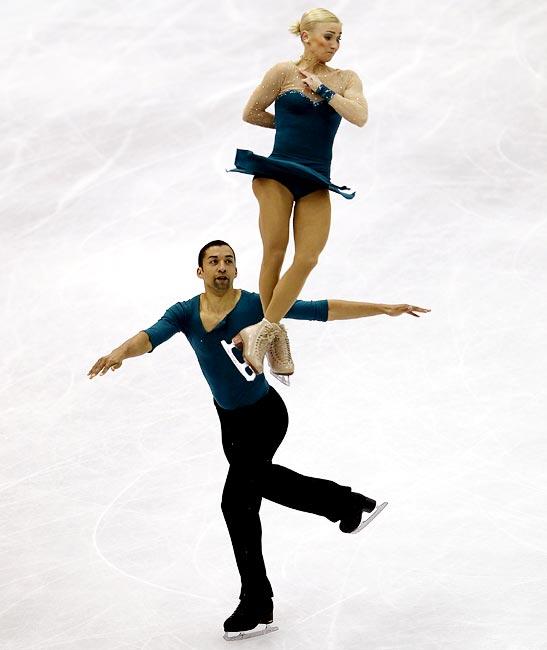
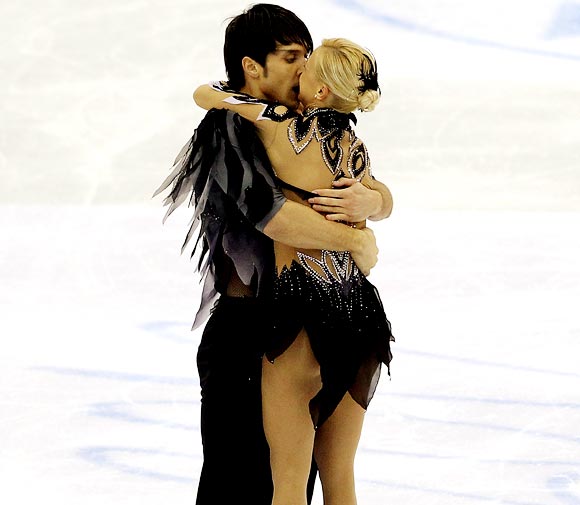
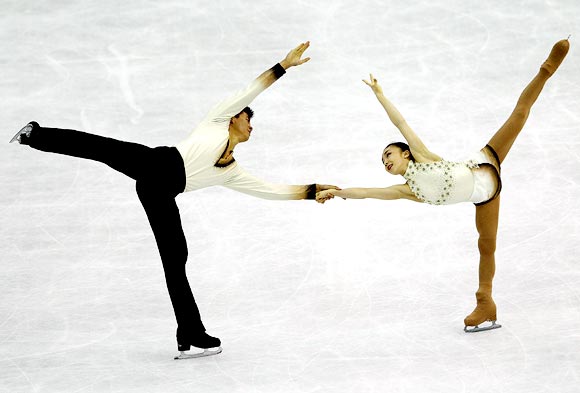
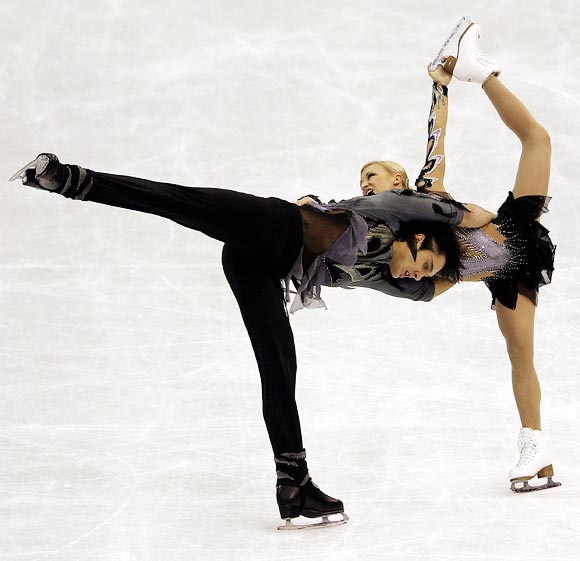
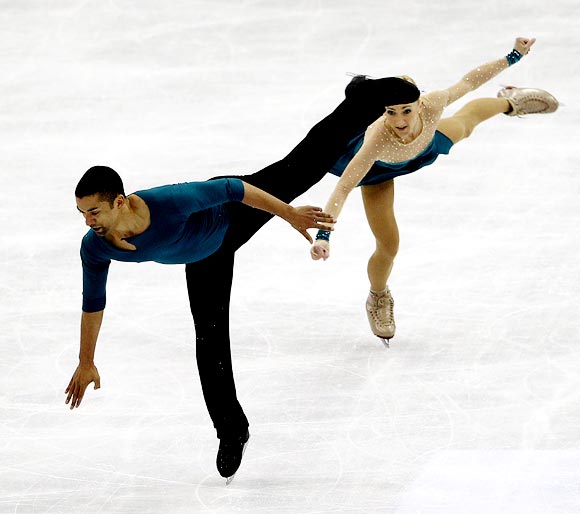

Comment
article